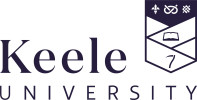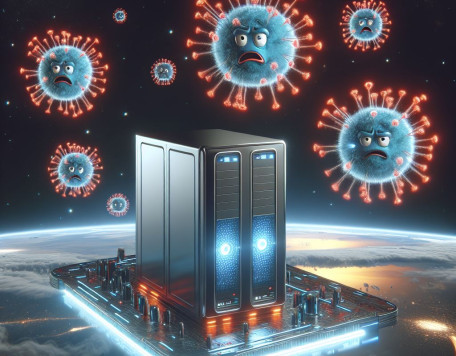© Pint of Science, 2025. All rights reserved.
How do birds know the way? What lives inside you? Bones are alive! And what is life, anyway, in a lifeless cosmos? Indulge in a cocktail of science, made simply to leave you shaken or stirred.
Life, the Universe and Everything – a love-hate relation with equilibrium
Jacco van Loon
(Astronomer)
Nature tends towards equilibrium. This is what makes things happen: stars shine, planets form, machines do work. It is how time is experienced. Equilibrium itself is utterly boring, though, and lethal. Being alive requires being out of equilibrium, all the time. That’s hard work, and unnatural. Or is it? Let’s learn from what the Universe is telling us about Life.
Jacco is an astronomer at Keele University with an interest in philosophy. Their favourite ways to follow time include thinking, sleeping, feeling the Earth and stroking their cats.
Jacco is an astronomer at Keele University with an interest in philosophy. Their favourite ways to follow time include thinking, sleeping, feeling the Earth and stroking their cats.
Why is granny on a shelf? Skeletal ethics for the 21st century
Charlotte Loy
(Forensic Scientist)
Body snatching and selling continued long after Burke and Hare. From popular American tiktokkers with their line of human spines, to shady Facebook marketplace sellers to glitzy auction houses: People want human bones, and they are willing to pay.
Can we rely on the Anatomy Act of 1832 to save us or do we need a new approach? Is it even important after the person has died to care for their bones? Would you be happy with your head on a shelf, made into an art piece or reciting Hamlet?
Human bones will tell a story of a life lived, often quite a hard one. This talk will be a whistle stop tour of what we use human osteology for and why ‘ethically sourced’ human skeletons are a complicated idea!
Can we rely on the Anatomy Act of 1832 to save us or do we need a new approach? Is it even important after the person has died to care for their bones? Would you be happy with your head on a shelf, made into an art piece or reciting Hamlet?
Human bones will tell a story of a life lived, often quite a hard one. This talk will be a whistle stop tour of what we use human osteology for and why ‘ethically sourced’ human skeletons are a complicated idea!
What we do and do not understand about the ability of animals (and potentially humans) to sense a magnetic field
Dmitry Kishkinev
(Animal Behaviour Researcher)
The talk will highlight evidence showing that many groups of animals do possess a magnetic sense and can use it for finding direction of movement and geographic position. This is a fascinating feat but we still do not understand in detail how animals can do that and what organs they use for that. There is growing yet limited evidence that humans may be able to perceive changes of magnetic field as well but this remains to be even less understood. This talk will present the key facts about so-called magnetoreception, the ability to perceive magnetic field changes, to the general audience and highlight what mysteries in this field of research remain to be uncovered.
Dmitry is an animal behaviour researcher mostly interested in behaviour and ecology of migratory birds and insects (some insects migrate 1000's mile!). He's spent over 20 years working in research organisations and universities in Europe and North America studying how animals can do fascinating long-distance travels and find their ways using only natural cues and without the need for fancy GPS or other electronics devices humans require.
Dmitry is an animal behaviour researcher mostly interested in behaviour and ecology of migratory birds and insects (some insects migrate 1000's mile!). He's spent over 20 years working in research organisations and universities in Europe and North America studying how animals can do fascinating long-distance travels and find their ways using only natural cues and without the need for fancy GPS or other electronics devices humans require.
The weird and wonderful world of viruses (or how to build your own virus)
Tom Foster
(Biologist)
Ever wondered what is a virus? How big are they? What are they made of? Why do they do what they do? These are important questions, sure, and this talk will answer them and even more profound questions such as: What is the best colour for a woodlouse to be? What’s doing even more for our climate than all of the trees in the world? I personally think that’s very important too, but honestly, there’s good stuff in there. Did I mention there’ll be chocolates and maybe a puppy?
Tom ‘Fos’ Foster, 29, is studying a PhD in Biology at Keele University. With 5 years of bartending experience, 2 years as a general labourer and an unconventional scientific career, he’s not your garden variety academic. He’s most at home in the sea, the pub or the lab after hours.
Tom ‘Fos’ Foster, 29, is studying a PhD in Biology at Keele University. With 5 years of bartending experience, 2 years as a general labourer and an unconventional scientific career, he’s not your garden variety academic. He’s most at home in the sea, the pub or the lab after hours.
Map data © OpenStreetMap contributors.
Other Tom's Tap and Brewhouse events
2025-05-21
How we control our destiny - or do we?
Tom's Tap and Brewhouse
5 Thomas Street, Crewe, CW1 2BD, United Kingdom


